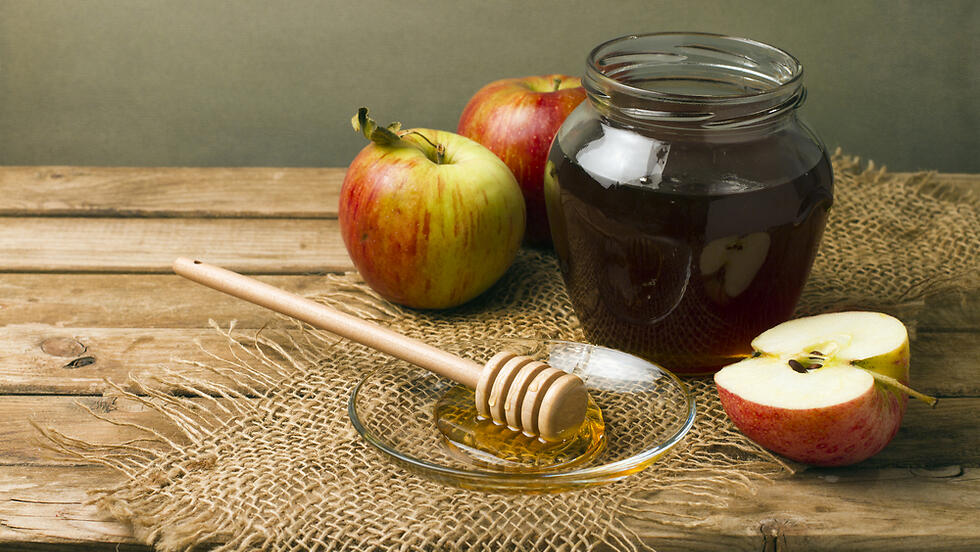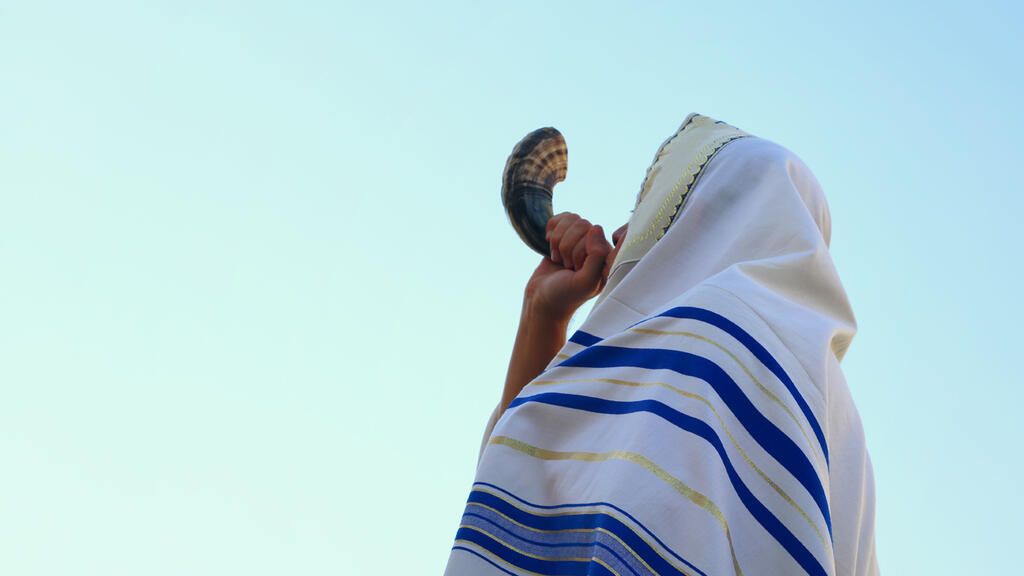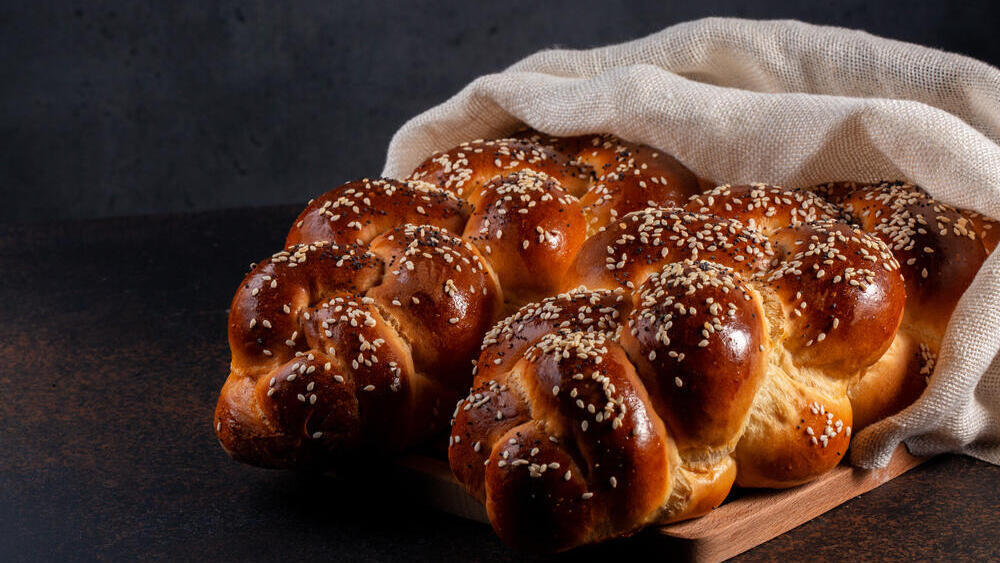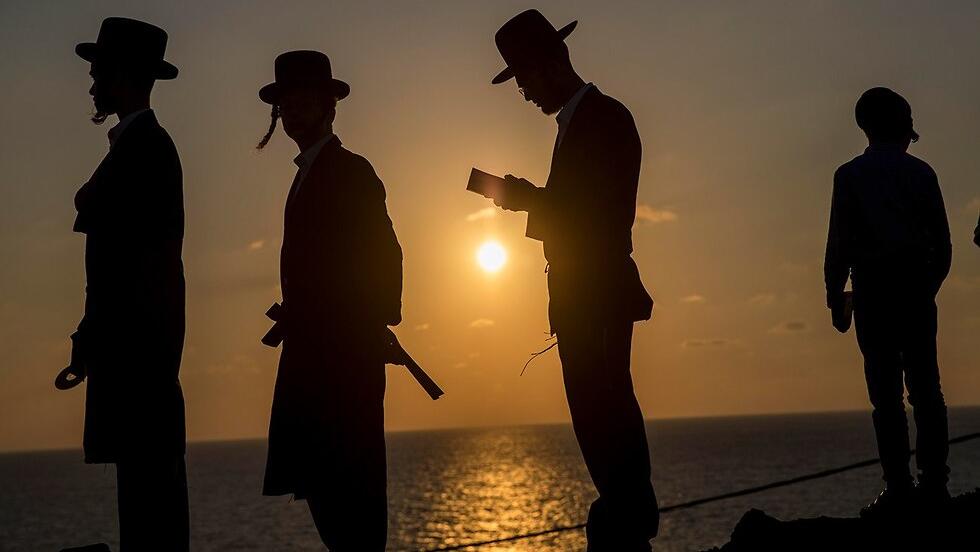Getting your Trinity Audio player ready...
What is Rosh Hashanah?
Rosh Hashanah is the birthday of the universe (Rosh Hashanah 27a, according to Rabbi Eliezer) and it is celebrated as the beginning of the Jewish year.
The Torah refers to this day as “Zikaron” (Remembrance) – “Zikaron Teruah” (Vayikra 23: 25). Therefore, in our prayers we often call it “Yom Hazikaron” (Day of Remembrance). This name expresses G-d’s hashgacha (providence) over the world. This day is also called “Yom Hadin” (the Day of Judgment) (see Mishnah Rosh Hashanah, 1:2; 15; Vayikra Raba 29:1), and this is the term we use in the special prayer of “Unetaneh Tokef.”
Judgment Day provokes anxiety. However, Jewish sages (following Nehemiah 8) taught us that Rosh Hashanah is a ‘Yom Tov’ during which we eat special foods - for example meat - and drink wine (Shulchan Aruch 597).
How could that be? This is judgment day we’re talking about. Our sages taught us (Yerushalmi, Tur 581:4) that this is indeed a day of judgment, but G-d wants the best for us. If we make good decisions and try to be good, we know that G-d will sign our judgement for the good.
Shofar blowing
Rosh Hashanah is also called “Yom Teruah” (Day of Shofar Blowing) in the Torah (Bamidbar 29:1). Thus, there is a mitzvah from the Torah to blow the shofar at Rosh Hashana.
What is the significance of the shofar blowing? The shofar blowing is made up of a simple blast (tekiah), and of a moaning and sob-like blasts (shevarim and teruah). Apparently, the blasts are supposed to shock us and shake us up (Maimonides, Teshuva 3:3).
But this explanation should be scrutinized. While shevarim may symbolize crying and create shock, the teruah in the Torah actually is a sound of joy that is particularly associated with the king’s coronation: “With trumpets and sound of the horn shout ye before the King, the Lord. (Psalms 98:6).” So, it is not clear: Does the sound of the shofar symbolize weeping and breaking, or the crowning of a king and joy?
The shofar blowing is supposed to remind us of our role in the world, our mission. On the one hand, there is a concern: Maybe we've messed up the mission, maybe there are things we haven't done properly, and we are required to fix. On the other hand, our very right to coronate G-d shows how much G-d loves us, and believes in us. G-d’s love for us gives us the strength to mend. It gives us strength even after the fracture (‘shevarim’) to reach a clean and pure place. (“tekiah”).
How many times the shofar is blown?
According to Jewish law, it is enough to sound 30 shofar blasts. Meaning, three times a tsr”t (tekiyah, shevarim, teruah, tekiyah), three times ts”t (tekiyah, shevarim, tekiyah), and three times tr”t (tekiyah, teruah, tekiyah). These blasts are blown in synagogue before the Mussaf, or additional, prayer. In addition, 30 more blasts are blown according to the order of the blessings in the Amidah prayer (10 blasts in in the Malchuyot section, 10 in the Zichronot section, and 10 in the Shofarot section). Some do the same for the silent Amidah prayer and the Chazarat HaShatz (repetition of the Amidah) prayer, and others only in the Chazarat HaShatz (and complete another 30 blasts after Mussaf). It is customary to complete 100 blasts (Rosh Hashanah Tosfos 33b), and therefore, at the end of the prayer, 10 more blasts are added - tsr”t, ts”t, tr”t.
It is good to hear all the blasts, but according to the law 30 blasts are enough. Thus, when the shofar is blown for women or other people who were not able to get to a prayer service, a total of 30 blasts are blown.
Why is Rosh Hashanah two days?
Rosh Hashanah is the only holiday in which the Yom Tov is observed as a two-day holiday in Israel. The Hebrew calendar is determined according to the moon. Every month, witnesses would come and testify that they had seen the beginning of the new moon, and so the court would sanctify the day as the first day of the month (today we do so according to the calendar based on calculation and not according to witnesses).
Rosh Hashanah is the only holiday that falls on Rosh Chodesh, the new month. In the past, it was difficult to inform everyone when the holiday was sanctified, and therefore Rosh Hashanah was established as a two-day holiday, to leave no doubt. Today, Rosh Hashanah is celebrated two days according to rabbinic decree and custom of the Jewish people. The first day of Rosh Hashanah is a Torah obligation (and this is why people are more stringent in their shofar blowing on this day) and the second day is a rabbinic decree.
There was a controversy over whether the two-day celebration of Rosh Hashanah should be considered as a yoma arichta – a long, extended day – or as the two days of festivals celebrated in the Diaspora. Therefore, there is doubt about saying the shehecheyanu blessing (which expresses gratitude to God for new and unusual experiences) recited on the second day. In fact, it is customary to say shehecheyanu both in the kiddush of the second day, and we try to have a new fruit (or new outfit) so that the shehecheyanu will apply to it too (Shulchan Aruch 500:2).
Simanim (symbolic foods) of Rosh Hashanah
There is a custom to eat specific foods at the beginning of the meal (of the first night, although some also eat them on the second night), to symbolize our prayers for the new year. What is the source of this common practice? Nehemiah (8:9-10) tells the nation of Israel to eat fat and sweet food on Rosh Hashanah. In the Talmud (Horiyot 12a) the rabbi Abaye writes that since symbols have significance, it is good for a person to engage in eating foods for good omens at the beginning of the year, and this has also been cited in the Shulchan Aruch (583).
What are the simanim? In the Talmud, the gourd, rubia (a type of long beans and, according to the great scholars, fava beans), karti (leeks), beets and dates, and you recite over each one of them a “Yehi Ratzon” (may it be G-d's will) prayer; On the dates, for example, that "the people who hate us be abolished."
It is common practice to eat an apple dipped in honey and say (Machzon Vitri 323): “May it be your will, our G-d and G-d of our ancestors that we should have a good and sweet new year.”
It is common practice to eat a pomegranate and say: “May it be your will, our G-d and G-d of our ancestors, that our merits increase, as the seeds of the pomegranate.” A fish is also eaten, symbolizing that we will multiply like fish, and some eat the head of a fish, to symbolize that we should always be the head and not the tail. You can add more signs and even say a “Yehi Ratzon” prayer of this kind.
There is a controversy as to when the simanim should be eaten. Some eat them before the meal, but most Ashkenazim and Sephardim eat them after hamotzi (and some eat the dates first, while others eat the apple dipped in honey first). The traditional custom is to bless the fruit: “Blessed are You, Hashem, our G-d, King of the universe, Who creates the fruit of the tree” (for example, on the apple dipped in honey), to taste a little, and only afterward to say “yehi ratzon” (There are other customs).
Additional customs on Rosh Hashanah
It is customary to wish “Leshana habaah tikatev v’tichatem" (may you be inscribed and sealed for a good year), or “ktiva v’chatima tova (Rama 582:8). Some do not sleep during the day of Rosh Hashanah, in order to receive strength during the rest of the year (Rama 583:2). This is only significant if one is studying or praying at this time, but if one does nothing of significance during that time, it is better to sleep (according to the Ari after midnight it is possible to sleep – Shulchan Aruch Harav 583: 8).
This is how you make Shofer
(Shofarot Yerushalayim)
It is customary to go to perform Tashlich on the first day of Rosh Hashanah, in which we ceremonially cast our sins into the river or sea (Shulchan Aruch 583:2). Of course, this is a symbolic act that tries to bring us to the realization that we are starting a new page, and that we have the power to add good to the world.
What are the special practices for Rosh Hashanah when it goes right into Shabbat?
This year, the immediately after Rosh Hashanah ends it becomes Shabbat, which has its own special laws.
Let’s briefly discuss the special laws for this year:
Eruv Tavshilin
This year, Rosh Hashanah falls on Thursday and Friday, and we need to prepare an "Eruv Tavshilin" so that we can cook on the holiday for Shabbat. To do this, on Wednesday, before the holiday begins, take a cooked dish and preferably also bread intended for Shabbat and say: "Blessed are You, Lord our God, King of the universe, who has sanctified us with His commandments and commanded us concerning the mitzvah of eruv." Then say in Aramaic or Hebrew: "Through this eruv, may we be permitted to bake, cook, kindle lights and do all that is necessary from the holiday to Shabbat."
The Eruv Tavshilin only helps with preparations from the holiday to Shabbat. However, it is forbidden to make preparations from the first day of Rosh Hashanah to the second day of Rosh Hashanah.
Showering
Even those who refrain from bathing on the holiday, partly due to concerns about squeezing out hair, understand that it's very uncomfortable to go three days without a shower. But, as with many laws, there are differences between communities here as well.
Ashkenazim: Solar water heater - One can bathe normally the entire body, though some are strict to bathe only in lukewarm water. When the boiler is turned off before the holiday, some are lenient with lukewarm water. For others, one can wash face, hands and feet (or the whole body, limb by limb).
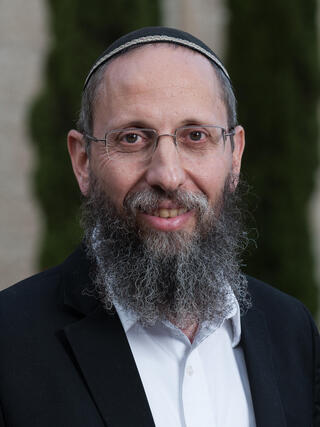 Rabbi Yosef Tzvi RimonPhoto: Yehoshua Halevi
Rabbi Yosef Tzvi RimonPhoto: Yehoshua Halevi Sephardim: Solar water heater - Bathe as usual.When the boiler is turned off before the holiday, bathe as usual. With a boiler left on during the holiday, one can wash face, hands and feet.
Those who wet their hair can use shampoo but without scrubbing. After bathing, it's permitted to dry the hair, but not to squeeze it. Also, on the holiday, one may only use liquid soap, not bar soap.
May G-d write and seal us all for a long, good life and peace! Shanah Tova to All!
- Rosh Yeshiva of the Jerusalem College of Technology, President of the World Mizrachi Movement, head of the "Sulamot" association and the Chief Rabbi of Gush Etzion
WHAT IS THE SIGNIFICANCE OF THIS JEWISH HOLIDAY?
( iltv)
First published: 22:59, 09.14.23


